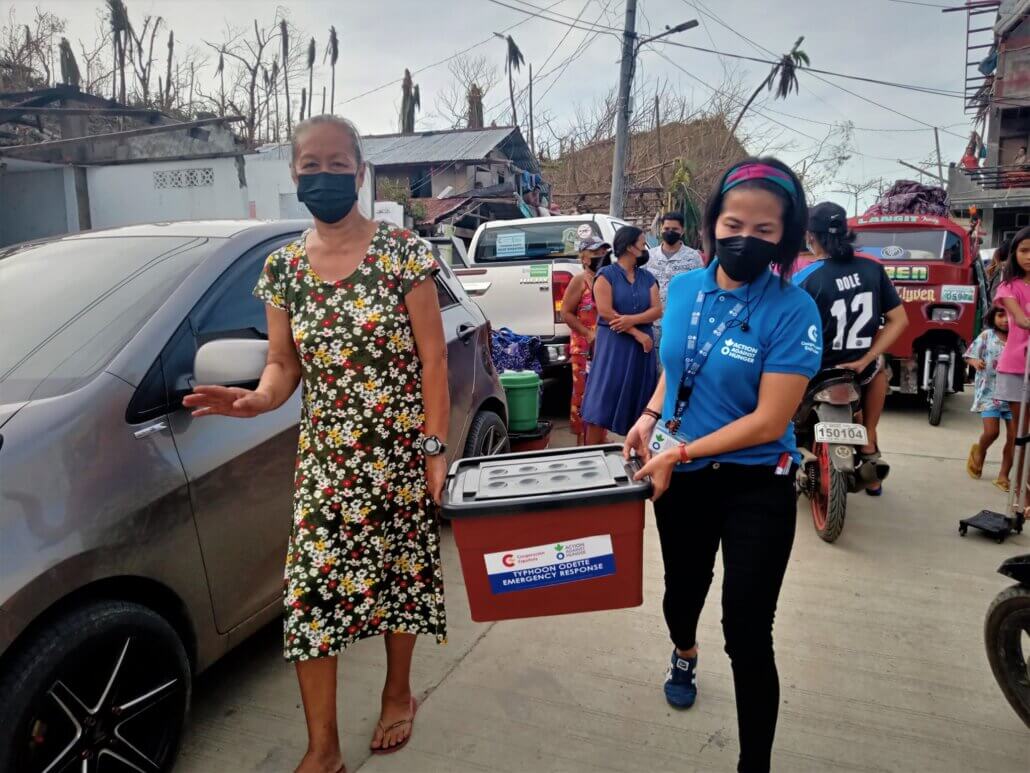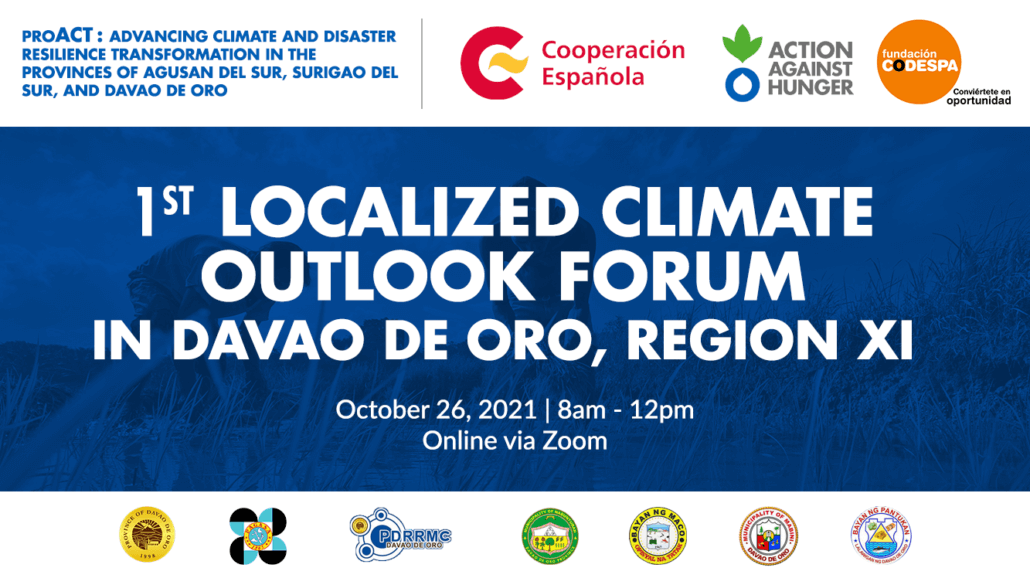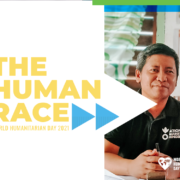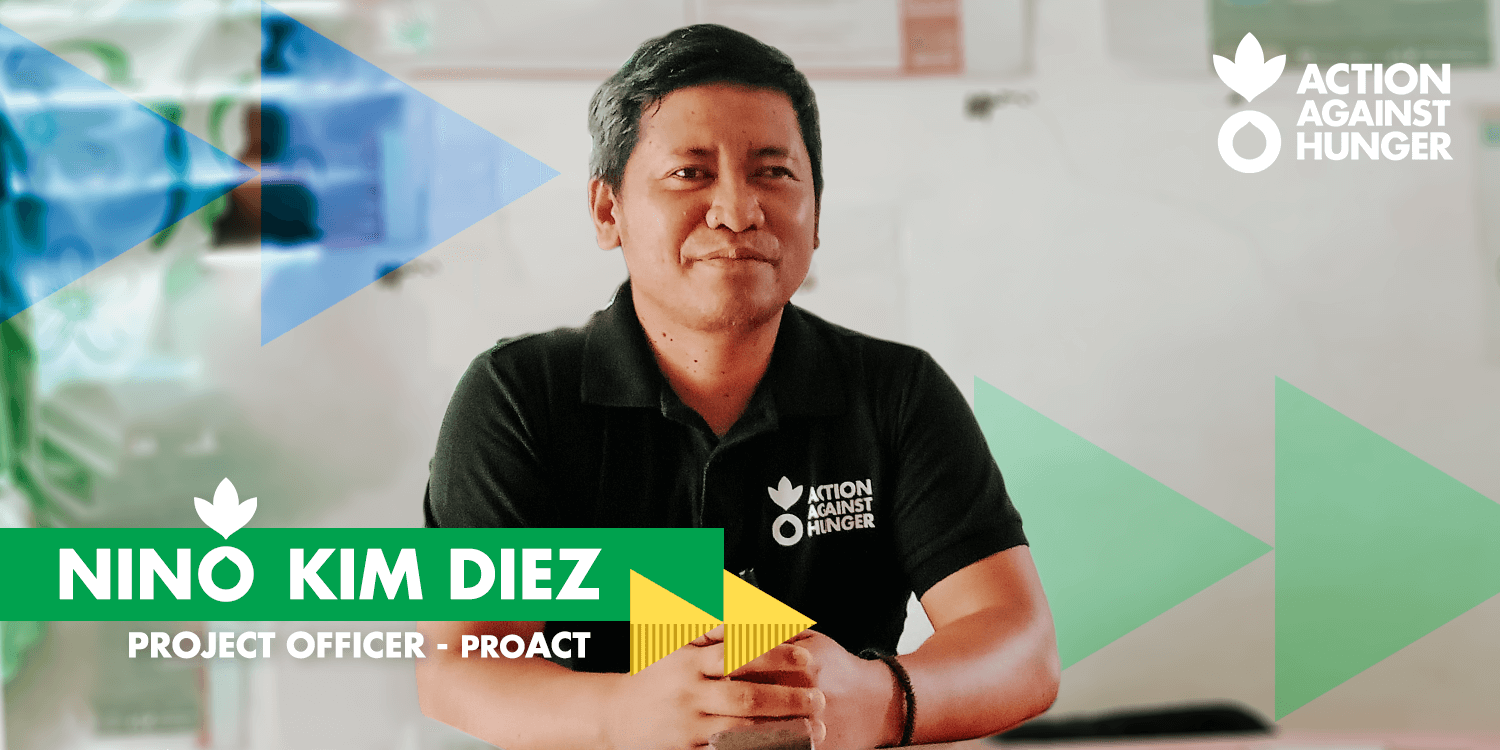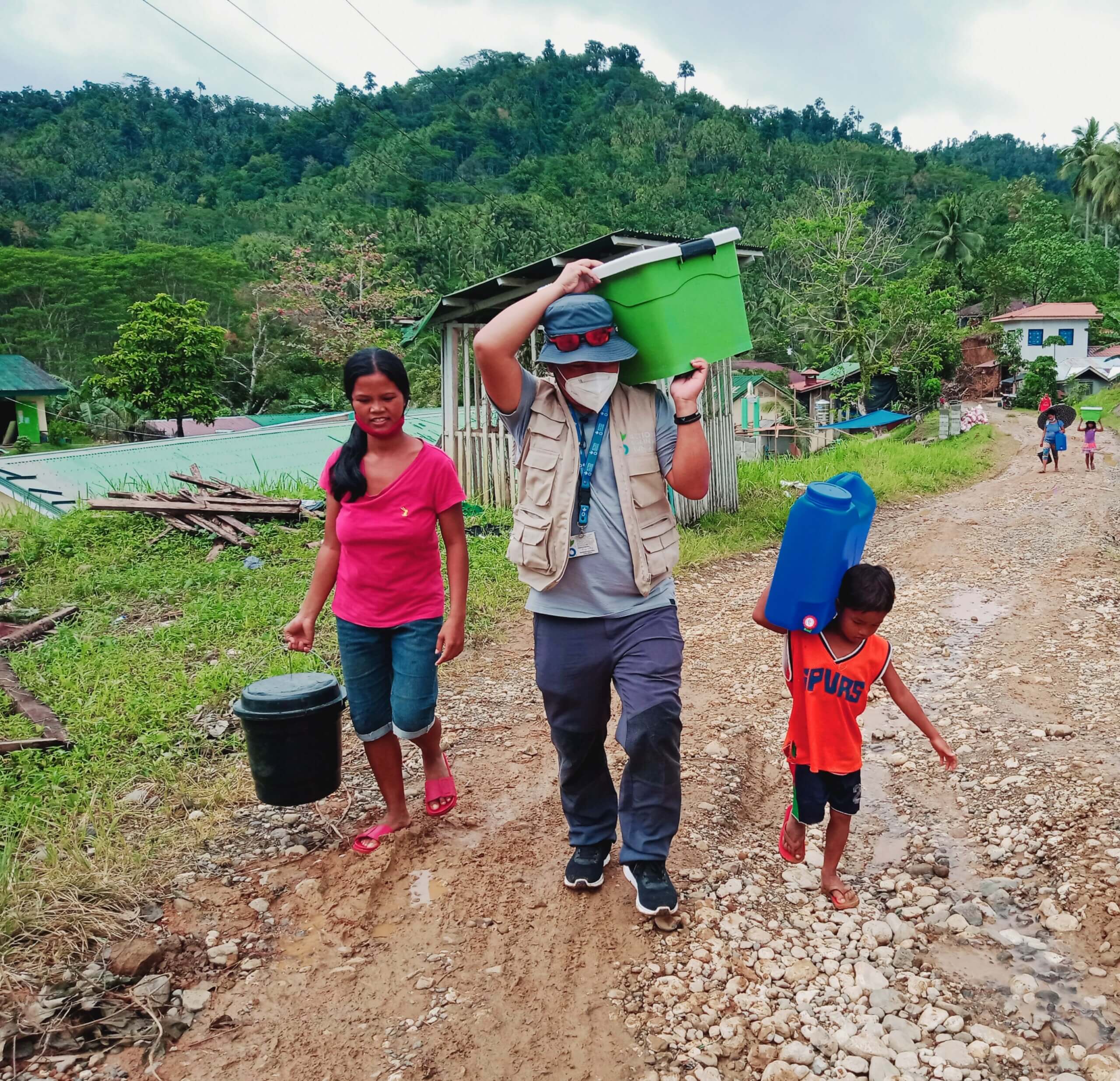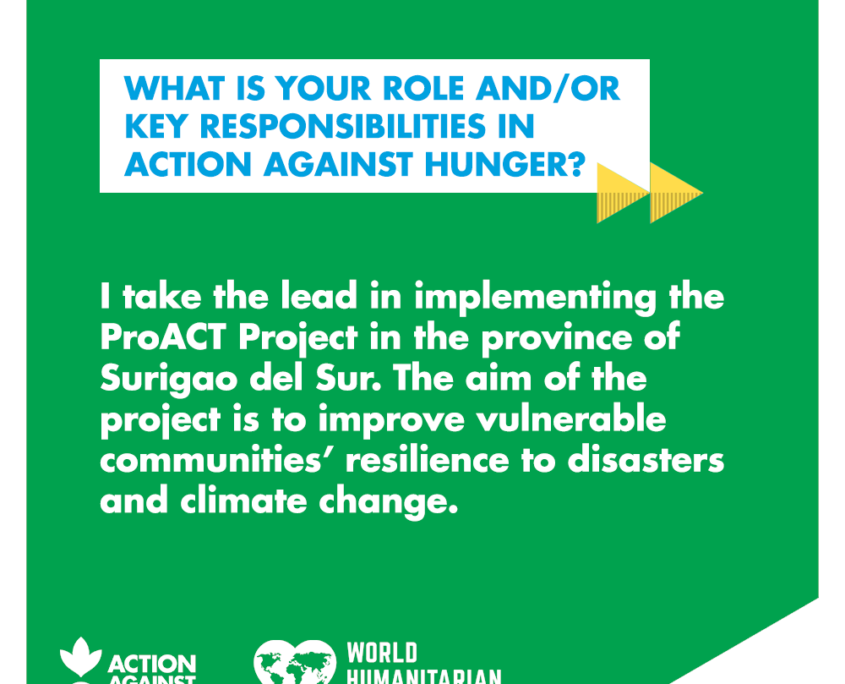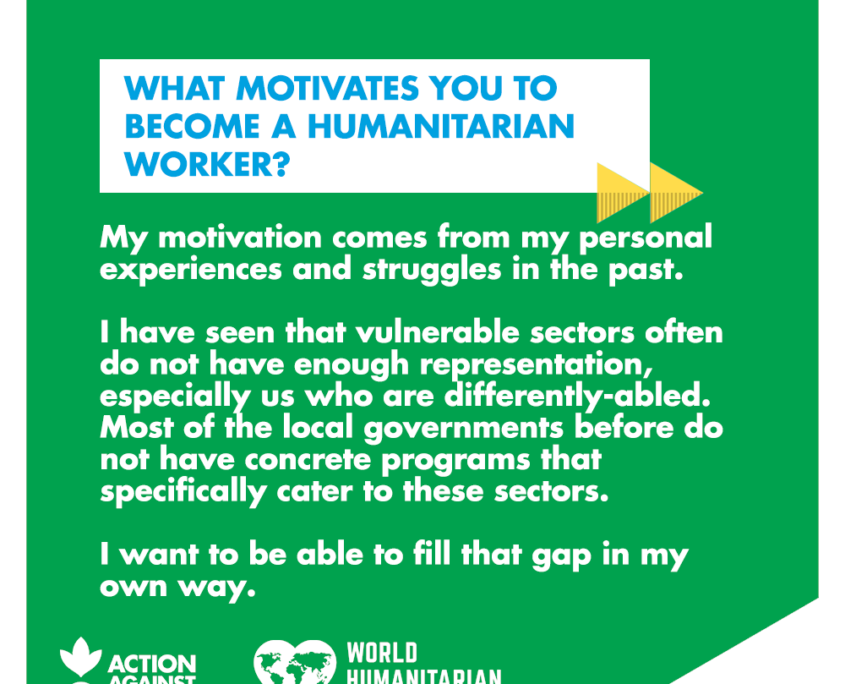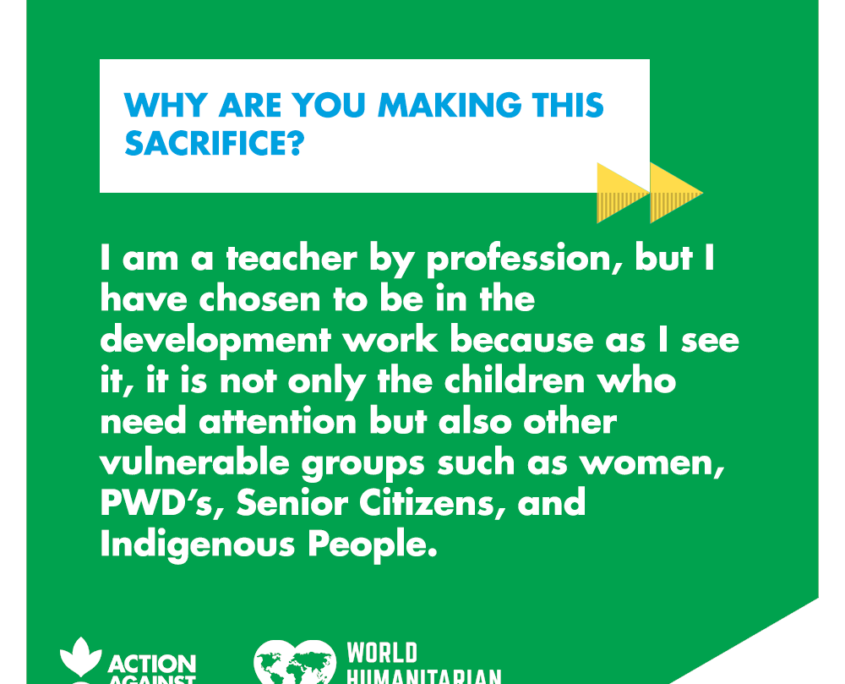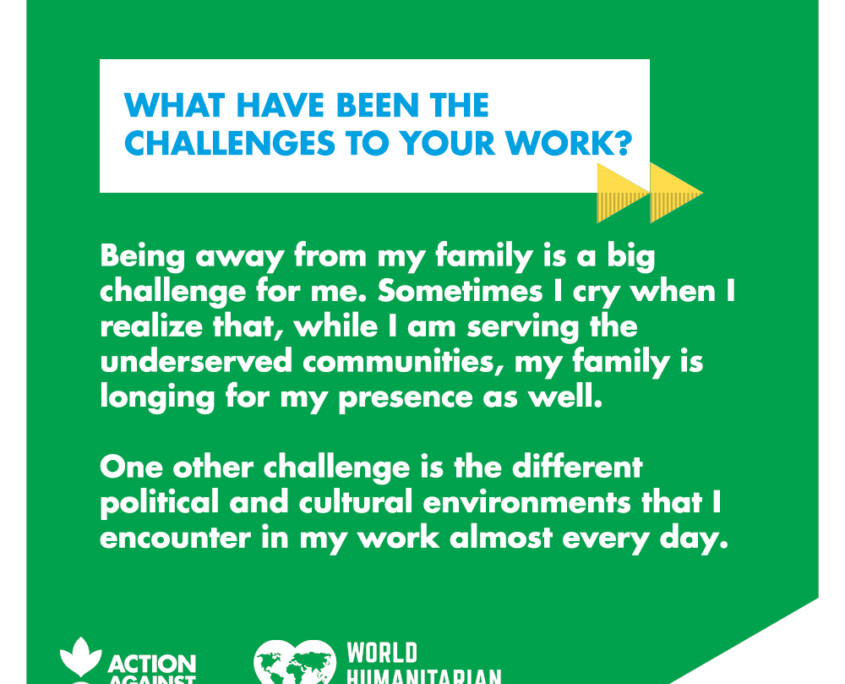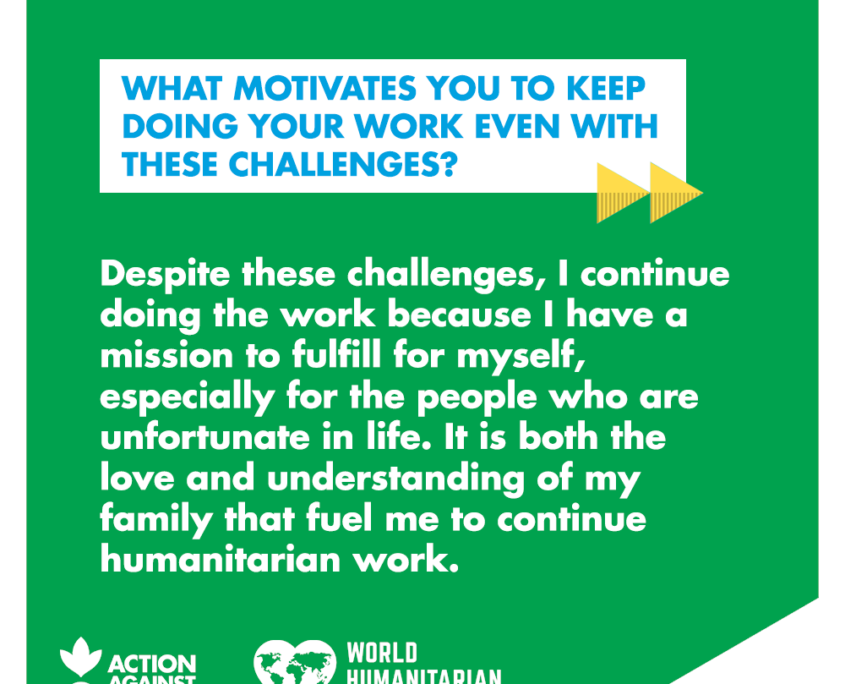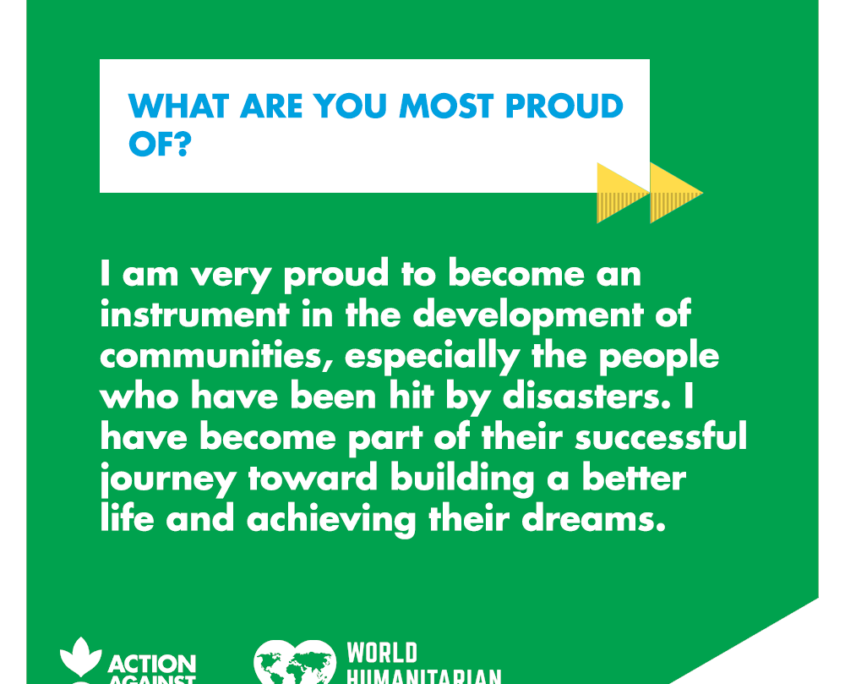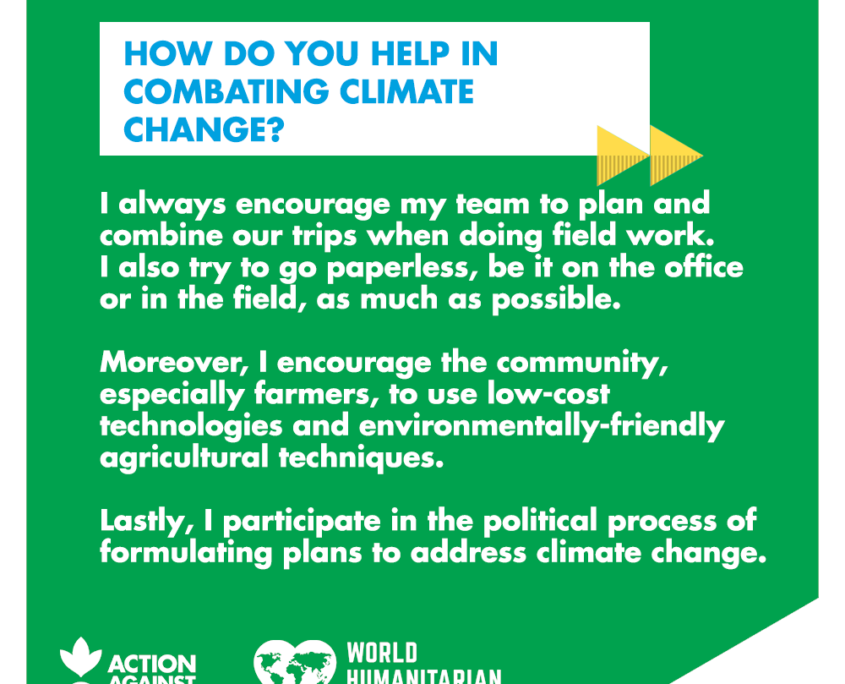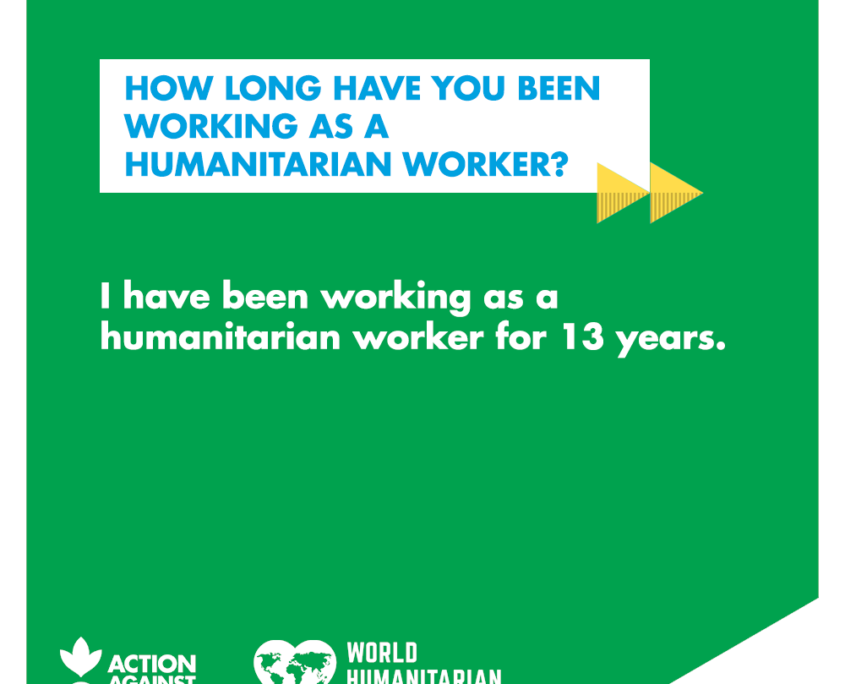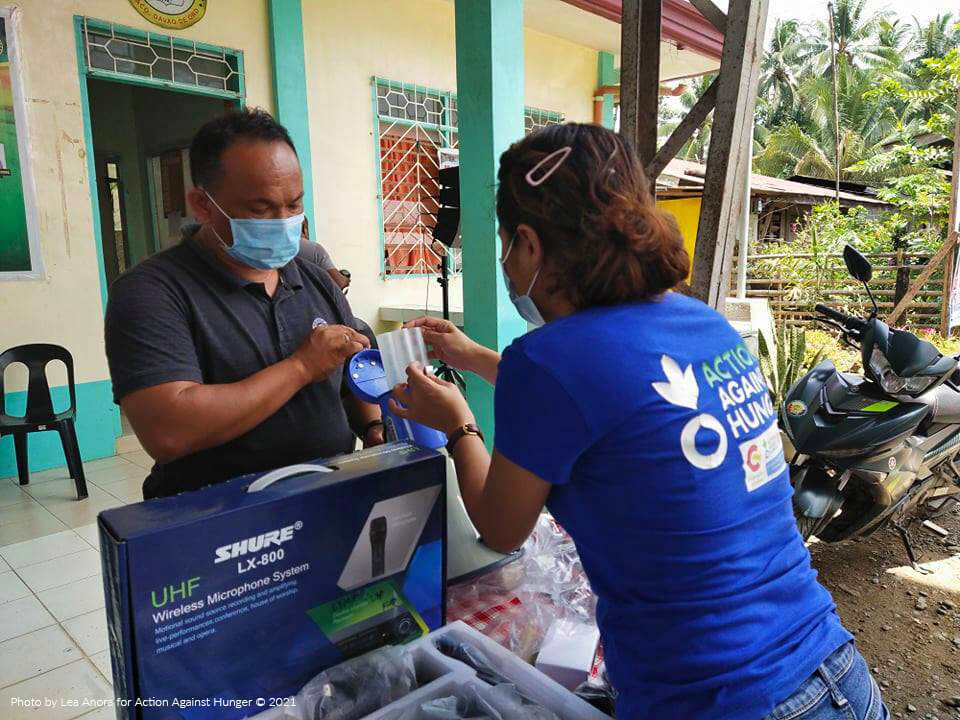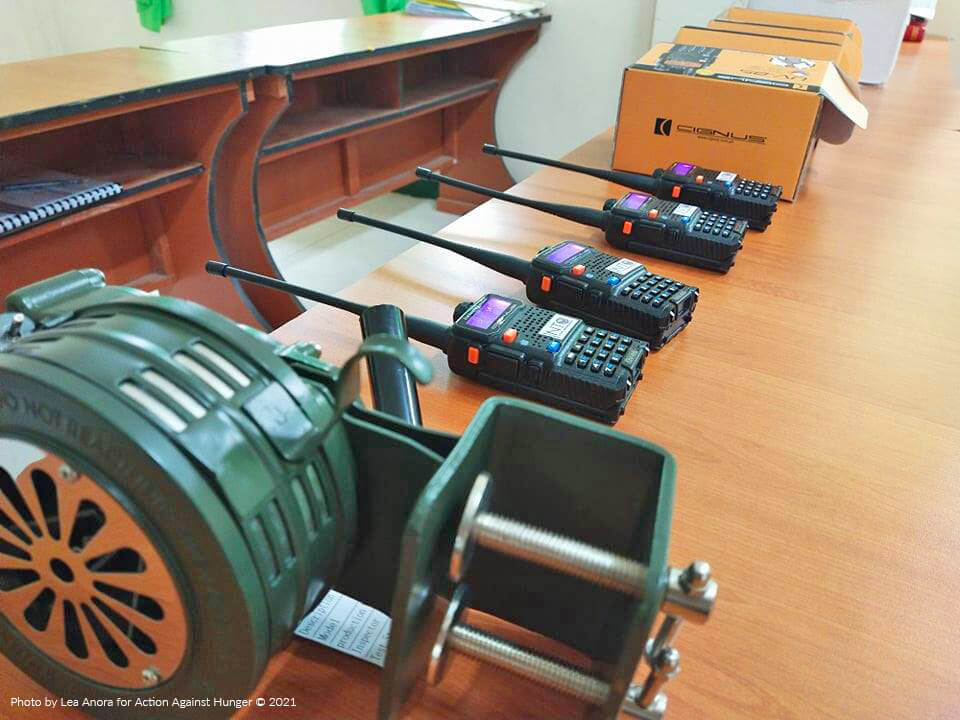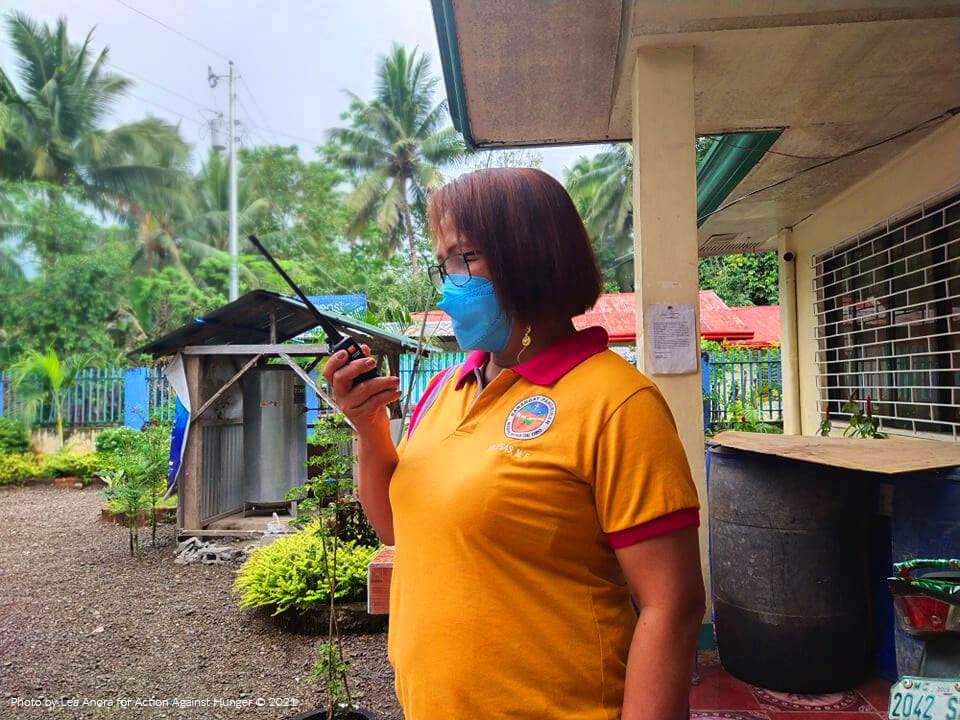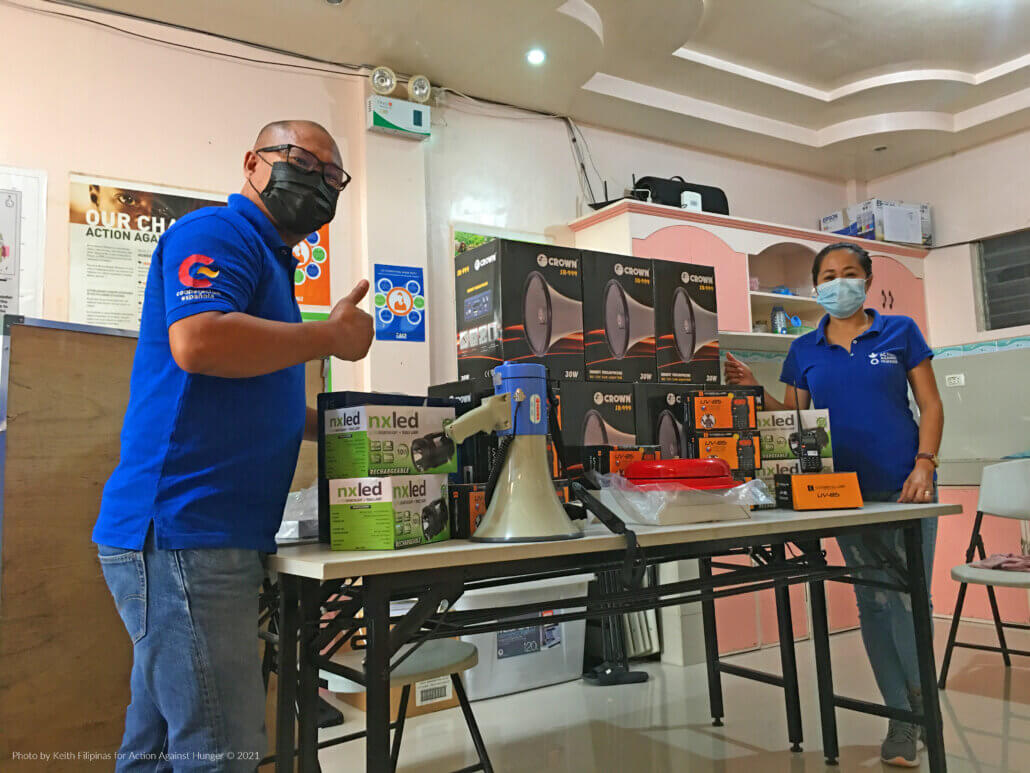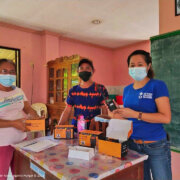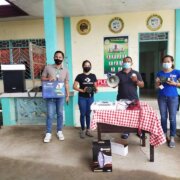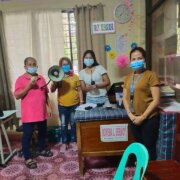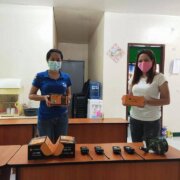Real Life Heroes: Lea Añora
What is your role in Action Against Hunger?
I am part of the PROAct Project that aims to improve disaster and climate change resilience in communities. As DRR Supervisor, I lead in facilitating skills and capacity training, spearheading community drills, provision of DRR Equipment and Early Warning Devices, facilitating, assisting our partner local government units in crafting and enhancing their DRR-CCA and Development plans, implementing Alternative Resilient livelihoods including the provision of technical support to partner Peoples Organization and conducting emergency response to disaster-affected areas, especially within the AOR of the base and neighboring provinces.
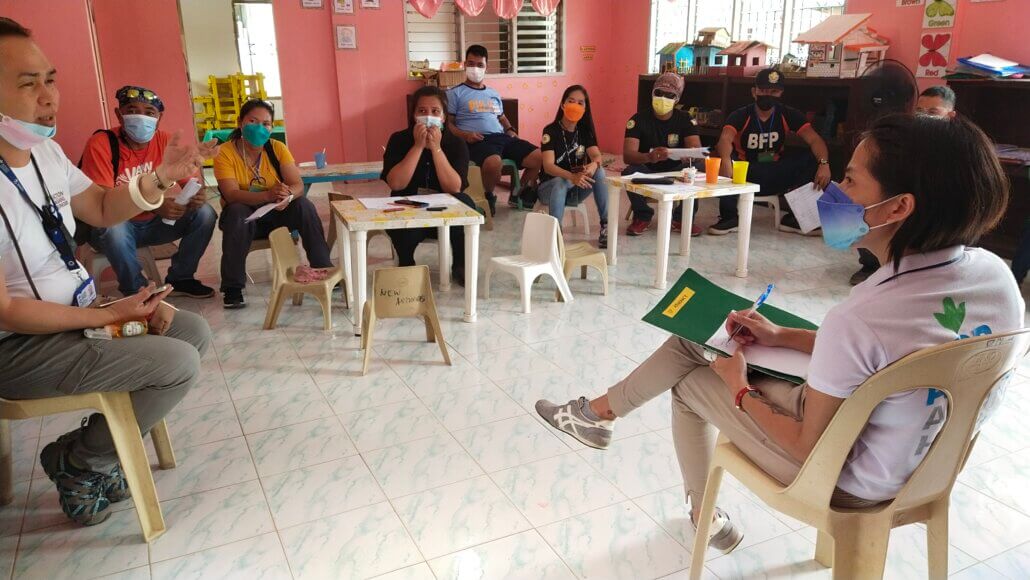
How long have you been working as a humanitarian worker?
It’ll be my 5th year in the organization this coming March 2022
What motivates you to become a humanitarian worker?
The trust and confidence of our partners, believing us and the organization that we WILL and CAN make significant changes in their lives and into their communities.
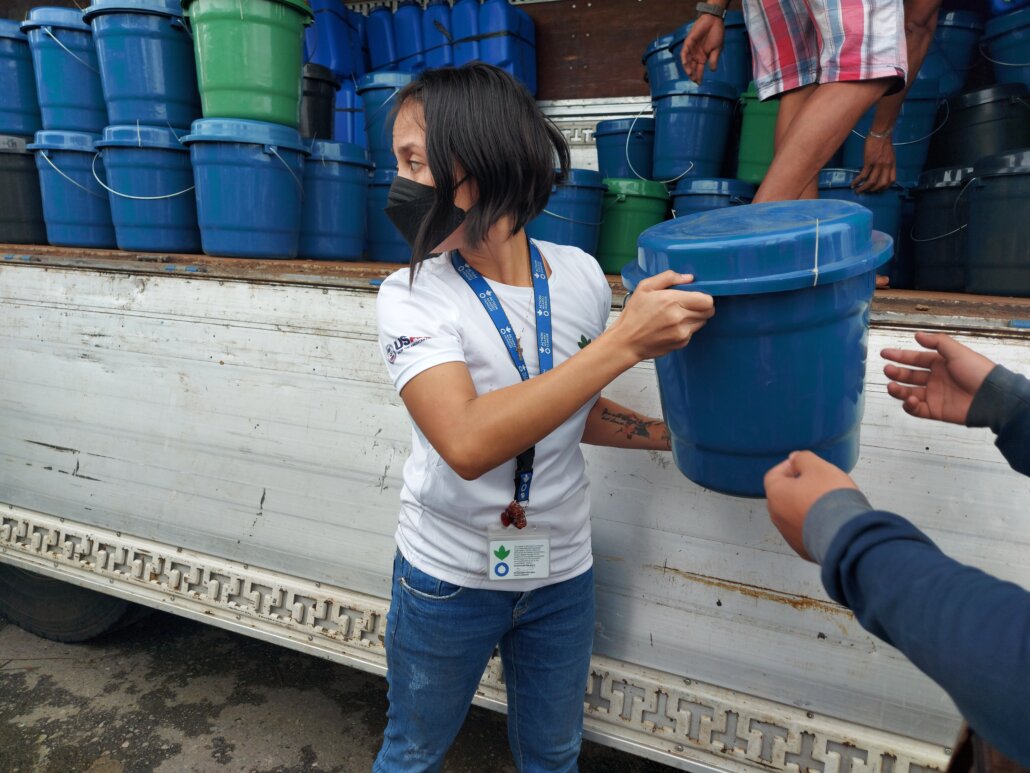
Photo by Dale Divinagracia for Action Against Hunger
Why are you making this sacrifice?
To see more faces of hope and joy, encouraging others to be an instrument of positive change despite the cruelty of the world.
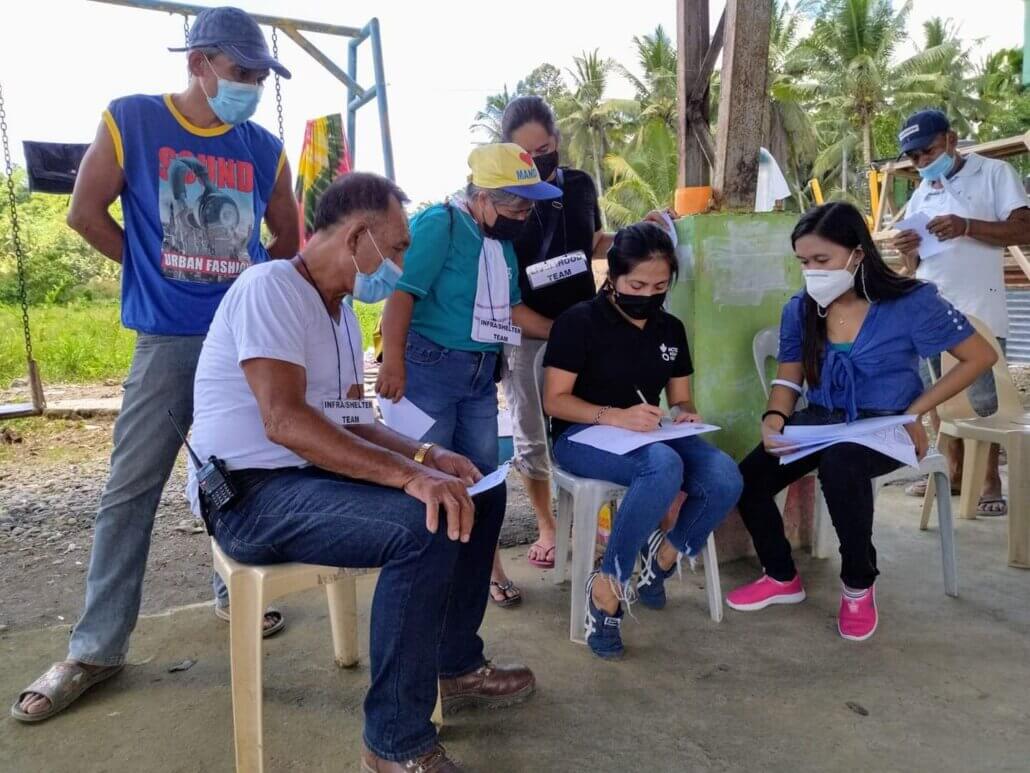
In photo: Lea (third from the right) in one of the activities of ProACT.
What have been the challenges to your work?
Engaging in a diverse environment, with people having different beliefs, stand-points, and characters.
What motivates you to keep doing your work even with these challenges?
Having the experience of being genuinely appreciated by the people that we are helping fuels me every day to do more beyond what is expected from me to accomplish.
What are you most proud of?
Recently, during our Typhoon Odette Emergency Response, I was part of the team that was deployed to Surigao City immediately after the aftermath of the typhoon. Everyone in our team, including our drivers, worked so hard that a 4-hour sleep and eating a full day’s meal was a luxury. There were times when we were all drenched in rain and in sweat during the first wave of our assessment and relief distribution. These challenges never stopped us.
Everyone extended an extra mile of heartful labor to aid the immediate needs of the typhoon survivors. This experience made me the PROUDEST – to be part of the most hardworking humanitarian force of Action Against Hunger.
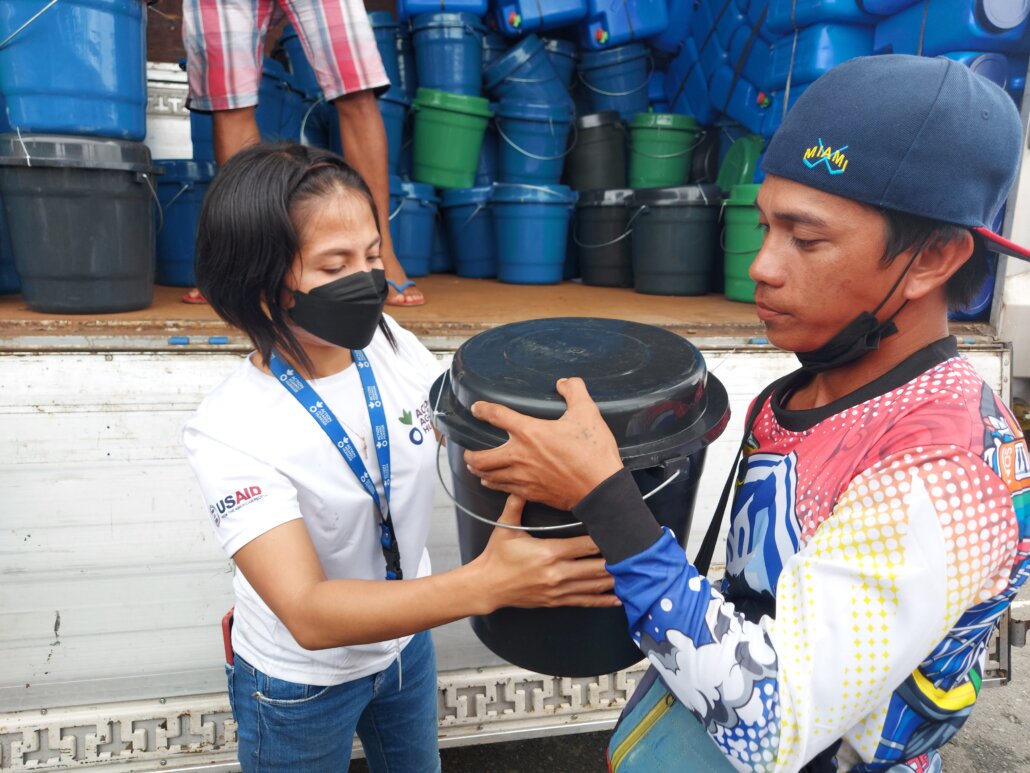
In photo: Lea hands over a hygiene kit during one of the Typhoon Odette Emergency Response distributions in Surigao City. (Photo by Dale Divinagracia for Action Against Hunger)
As a DRR Supervisor, what climate change impact have you seen with your own eyes?
Taking to countless farmers and fisherfolks through the years, the common lament is that their yield has been dwindling. This is due to the extreme weather conditions that we are all experiencing today; change of weather pattern, severe heavy rainfall, long periods of the dry season, and rising sea level. These not only directly affect the livelihood of the farmers and fisherfolks, but also of the average customer because of rising prices for food.
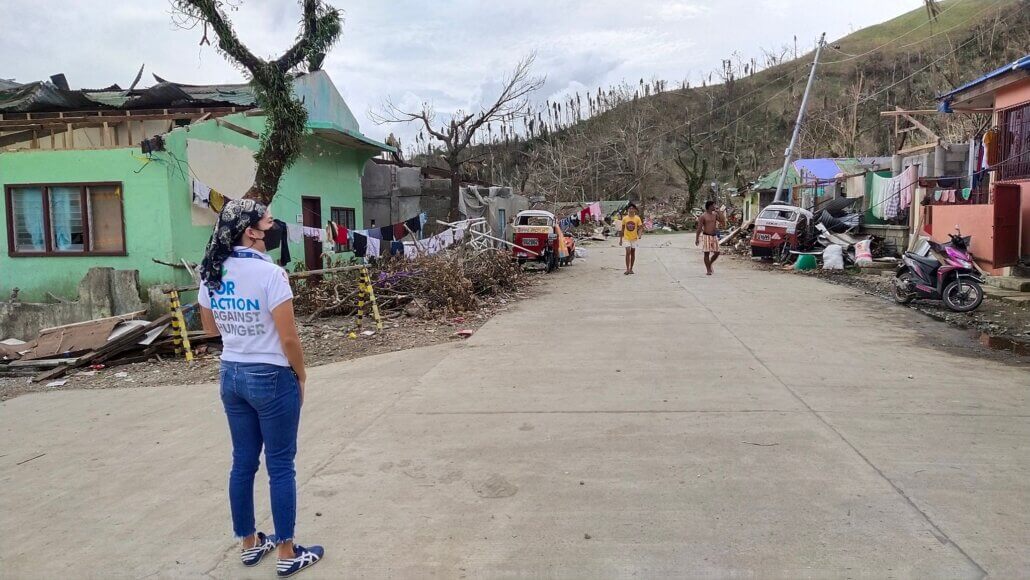
Photo by Nino Kim Diez for Action Against Hunger
How do you help in combating climate change?
It is a challenge fighting against climate change. We can’t stop it. But, we can mitigate its impact. Strengthened advocacies on DRR-CCA, people’s increased resiliency, and capacities, and strong support from our local government units, concerned national government agencies, and non-government agencies or organizations are one of the most important keys in executing projects, programs, and activities that directly address the adverse impact of climate change in our communities.
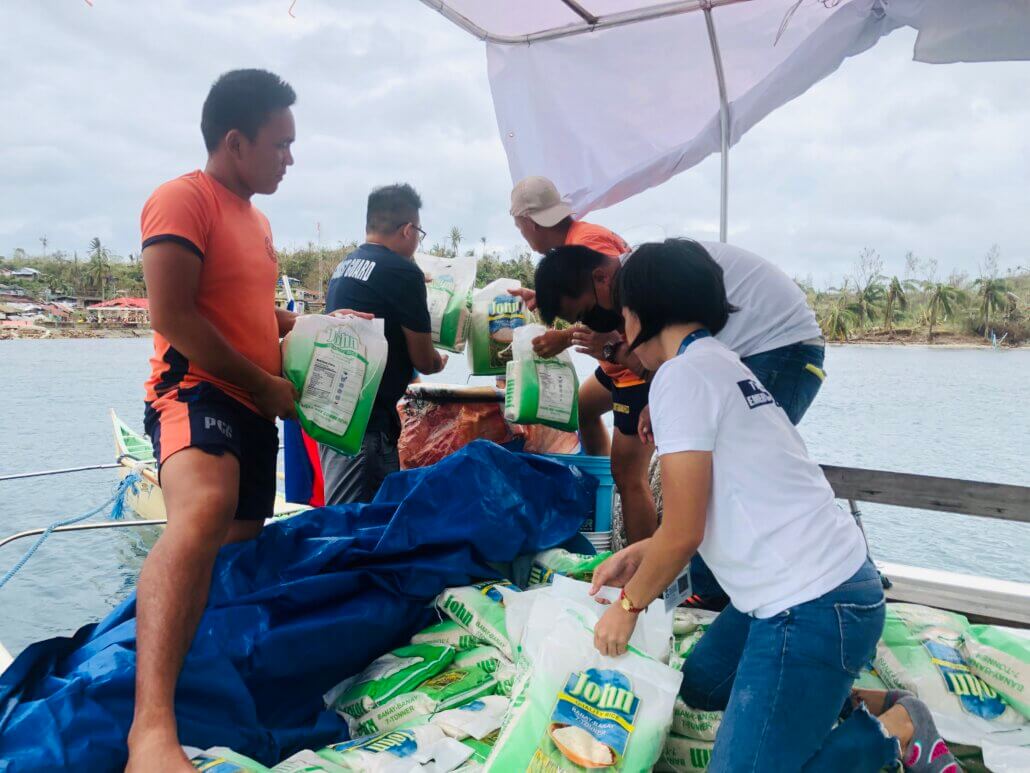
In photo: Lea helps load the sacks of rice for distribution to Typhoon Odette survivors in Surigao City (Photo by Nino Kim Diez for Action Against Hunger)
How do you #BreaktheBias in your line of work or day-to-day activities?
In the humanitarian world, there is no room for discrimination. Each of us is given the opportunity and responsibility in helping the needs of the people, especially in times of crisis. I myself work without any bias towards my gender, for my attitude and passion define my work ethic which radiates to the people that I am working with.
How do you envision a gender-equal world?
A gender-equal world is a world that gives rights, independence, power, and responsibilities to both women and men without discrimination and segregation.
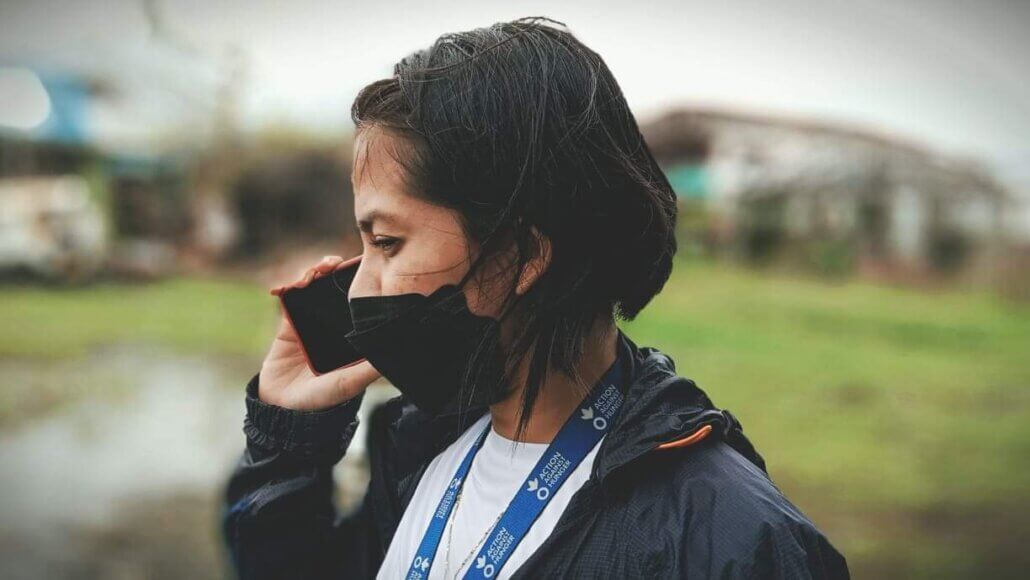
Photo courtesy of Lea Anora
‘Advancing Climate and Disaster Resilience Transformation in the Provinces of Agusan Del Sur, Surigao Del Sur, and Davao de Oro’ (ProACT) is a consortium project funded by the Spanish Agency for International Development Cooperation (AECID) and implemented by Action Against Hunger & Fundacion CODESPA.


